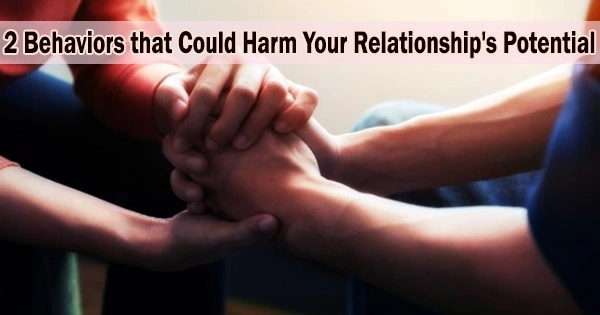Many patients ask how their relationship progressed from “point A” to “point B” when they first enter treatment. They may say things like:
- “We were always rock solid. I don’t know what happened.”
- “I never would have imagined that we would end up in such a resentful place.”
- “How do I make things go back to the way they were before?”
Here, I’ll talk about two factors that can eat away at the heart of your relationship and what you can do to ward off their noxious effects.
Be cautious of the company you keep.
Has your partner ever questioned your decision to maintain friendships with particular people? Perhaps they are wary of these people and fear that you might exhibit some of their dishonest behavior.
According to recent research published in the Archives of Sexual Behavior, these worries are not unfounded or a sign of a partner who is overly controlling but rather have a solid basis in reality. Psychologist Gurit Birnbaum a faculty member of the Baruch Ivcher School of Psychology in Israel and the lead author of the paper, stated:
People may gravitate toward appealing options in a peer context where infidelity is perceived to be acceptable, and may feel more at ease considering having affairs if they are aware that others are having affairs.
In other words, people are more likely to adopt the same moral standard if they hang out with people who don’t think much of it or even embrace lying. The trust in a relationship can be damaged by a shift in attitude toward the subject, no matter whether physical or emotional cheating is actually taking place.
People in committed, monogamous relationships are therefore advised by psychologists to be aware of their social influences. Associating with people in your neighborhood who have strong commitments to their partners can help you feel more dedicated to your partner.
Keep your moral identities aligned.
Opinions regarding cheating and infidelity aren’t the only ethical positions that can drive a wedge in your relationship.
Any discrepancy between what couples believe to be ethical behavior, according to research published in the Journal of Personality and Social Psychology, might cause relationship issues.
“When someone close to us behaves unethically, we face a conflict between upholding our moral values and maintaining our relationship,” explained Rachel Forbes, the lead author of the study from the University of Toronto in Canada.
While it is human nature to take the side of our loved ones in ethically ambiguous situations, Forbes suggested this can have long-term mental health consequences.
“By protecting close others, we seem to bear some of the burdens of their misbehavior,” noted Forbes. “Our moral values lead us to feel embarrassed, ashamed, and guilty about their actions.”
Making sure you and your partner agree on what you think is morally righteous behavior is one way to get over these feelings. It can help your relationship if you take the time to define some moral principles that you both adhere to. You can do this preemptively (i.e., before any potentially problematic situation arises) or on an ad-hoc basis (i.e., reflecting on ambiguous situations after they occur and developing a shared moral position).
For people who might be struggling with being honest about their loved ones’ misbehavior, Forbes offered the following advice:
“The ambivalence we feel when confronted with close others’ bad behavior is difficult to reconcile. When faced with a loved one’s unethical behavior, it’s important to reflect on our moral values and whether the act itself fits within those values.”
Conclusion
You and your partner need to respect one another’s variations in viewpoint. However, you must also respect each other’s unassailables. Ensure that your perspectives on moral and ethical ambiguities are completely congruent to preserve the purity of your relationship.
















